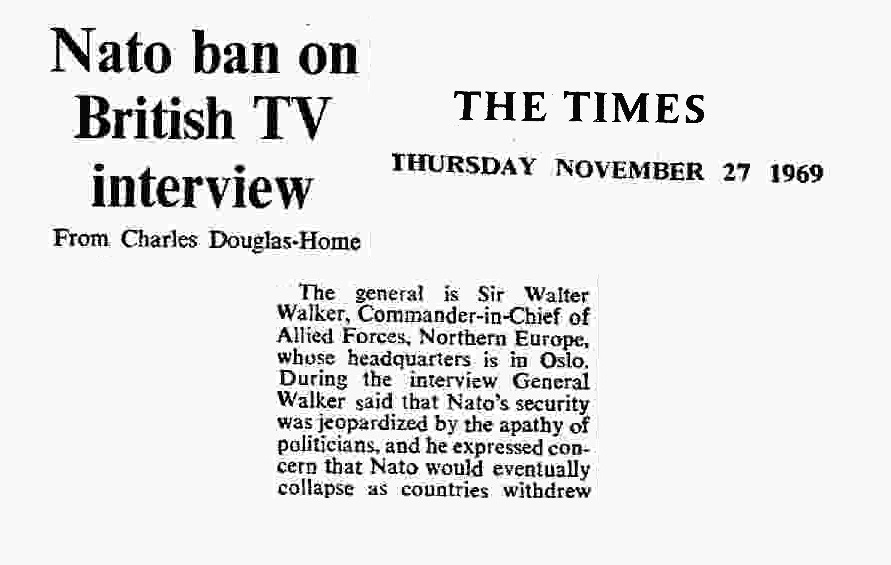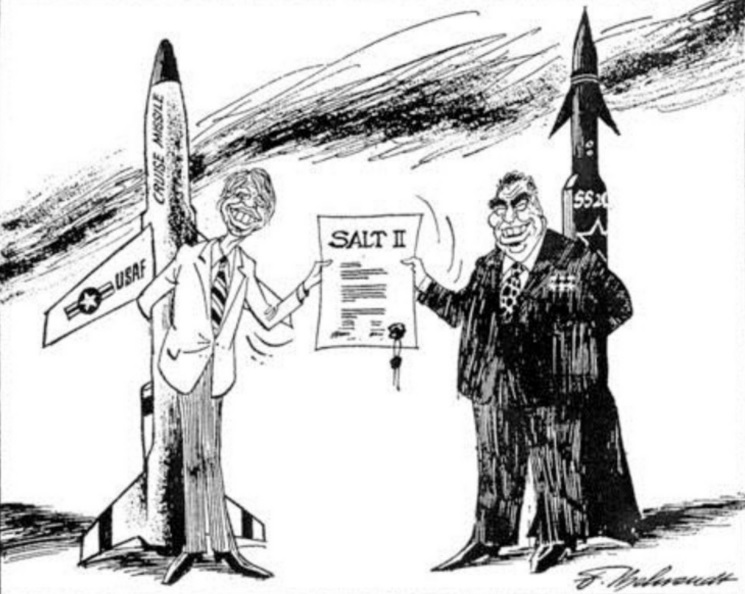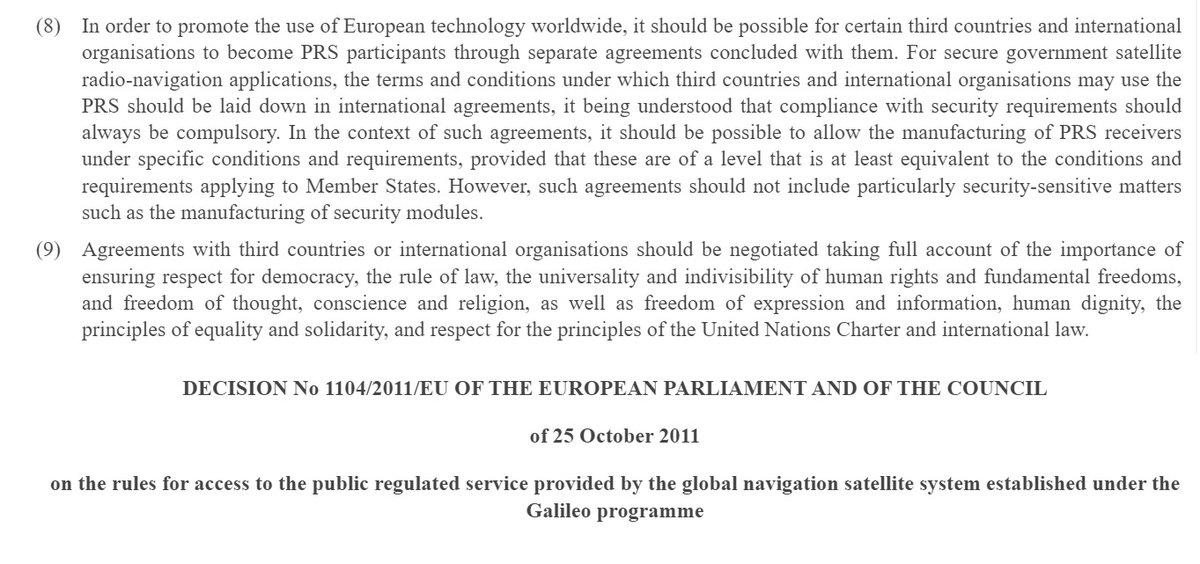
Dear Mr @SimonMcCoyTV, I noticed the other day that you claimed “What we joined was a trading bloc”, and this is a damaging line to take for the country. Please let me explain. 🧵
Firstly, while it began in the economic field, the EEC was not introduced as anything other than a political project, and its political development can be seen developing shortly after its inception. 

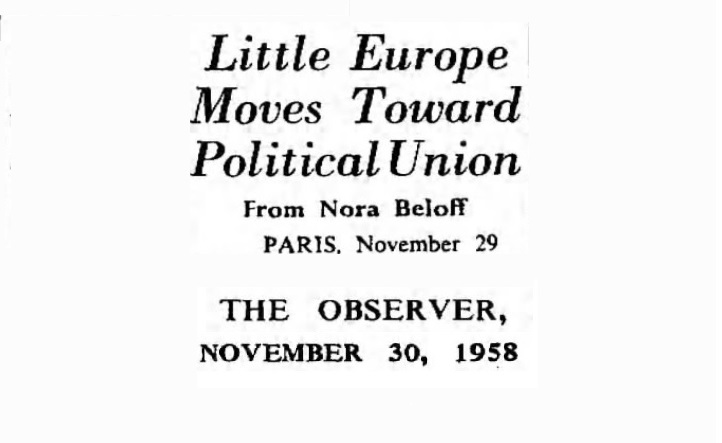
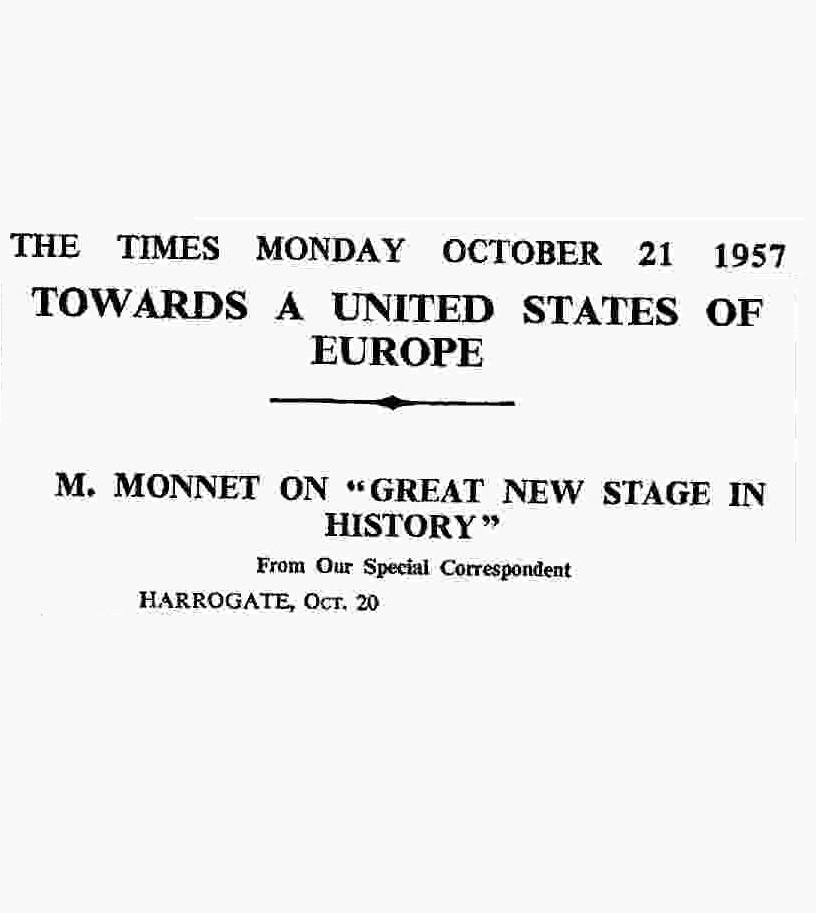
23rd November, 1959 the first move to a political institution is made with regular meetings of foreign ministers. 

18th July. 1961 the six founders of the EEC declare that political union was implicit in the Treaty of Rome. 

1st November, 1961, the first draft of the first treaty of European Union, covering Foreign Policy, Defence and Cultural areas, is released. 

January 3rd, 1963 de Gaulle’s New Year message is that “The first thing Is the Union of Western Europe in the economic, political, defence and cultural fields.” 
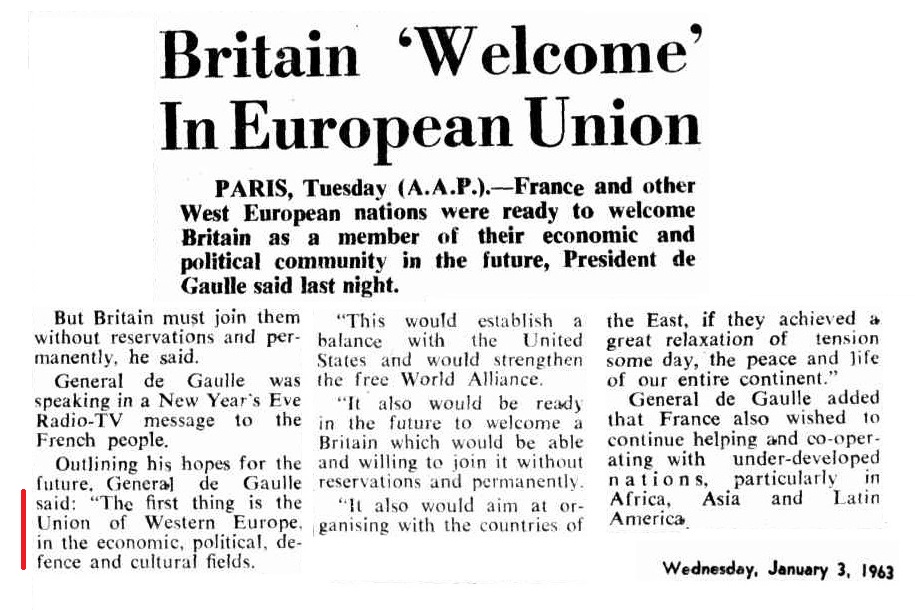
May 8th, 1967 the EEC now require the UK to accept their membership should be first and foremost a political decision. 

October 27, 1970 the Luxembourg report (Davignon) is adopted, adding foreign policy commitments and a political committee to the EEC. 

October 21st, 1972 the Community announced they would be turning the EEC into a European Union by 1980. 

On the eve of the UK joining, the political committee is being employed to prepare for the European Security Conference, where the countries of the EEC would go on to stand toe to toe with the Soviet Union for the first time. 

Leaving the government to write in their February 1974 manifesto “Community membership has been of major importance for our foreign and defence policy as a whole, providing us with a new dimension and a new voice in world affairs” 

As for how the EEC was sold to the people in the UK, the economics were at the front for the first negotiation, with the foreign affairs and defence aspect taking second place. 

To make matters worse for the pro-Marketeers, the government release a White paper saying that some food prices would raise between 19-26% during the transition period if we join the EEC. 

There is already high inflation on commodities like butter.
Consequently, the Pro-Marketeers put the political benefits to the front, the trade to the back and the "Common Market" becomes “Not about the price of butter”.
Edward Heath argued that the political nature of the EEC must be developed because it must be more than haggling over the price of butter. 
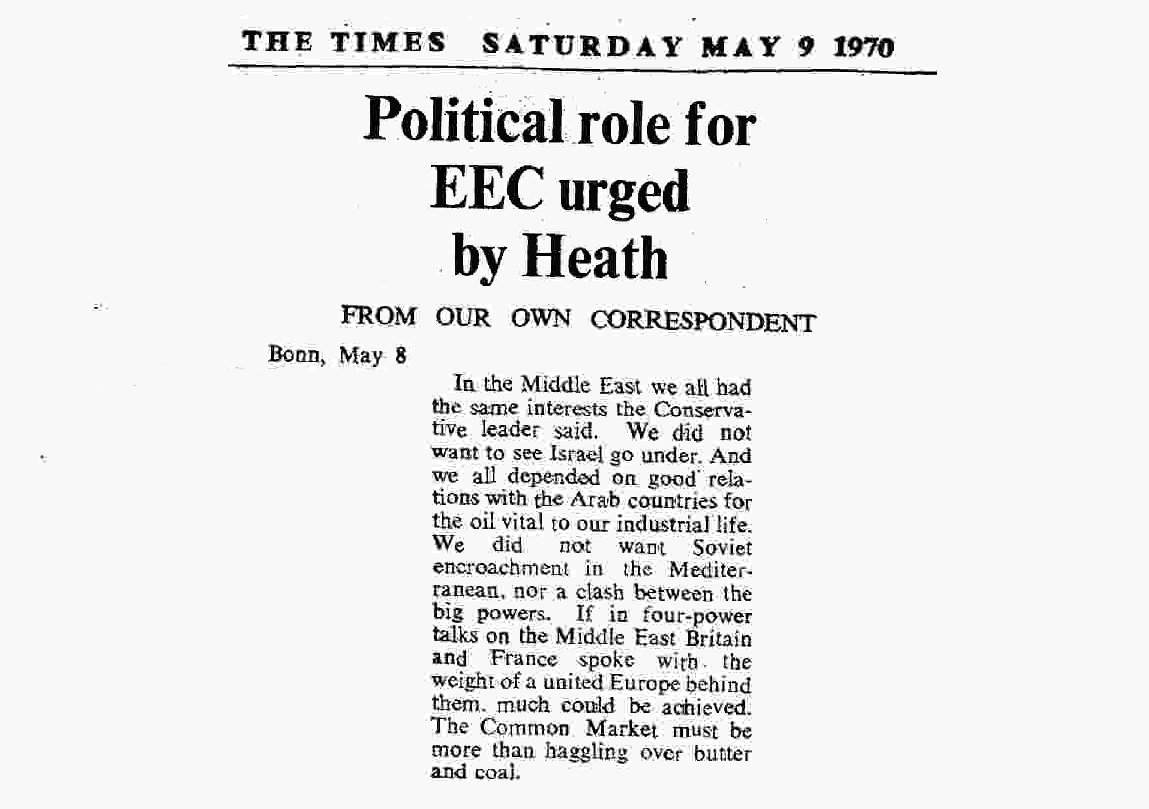
“European civilisation, the heir alike of Jerusalem. Athens and Rome has never yet found political institutions worthy of its lineage. It must now do so, or perish. This, not butter, is what the Common Market is really about.” 
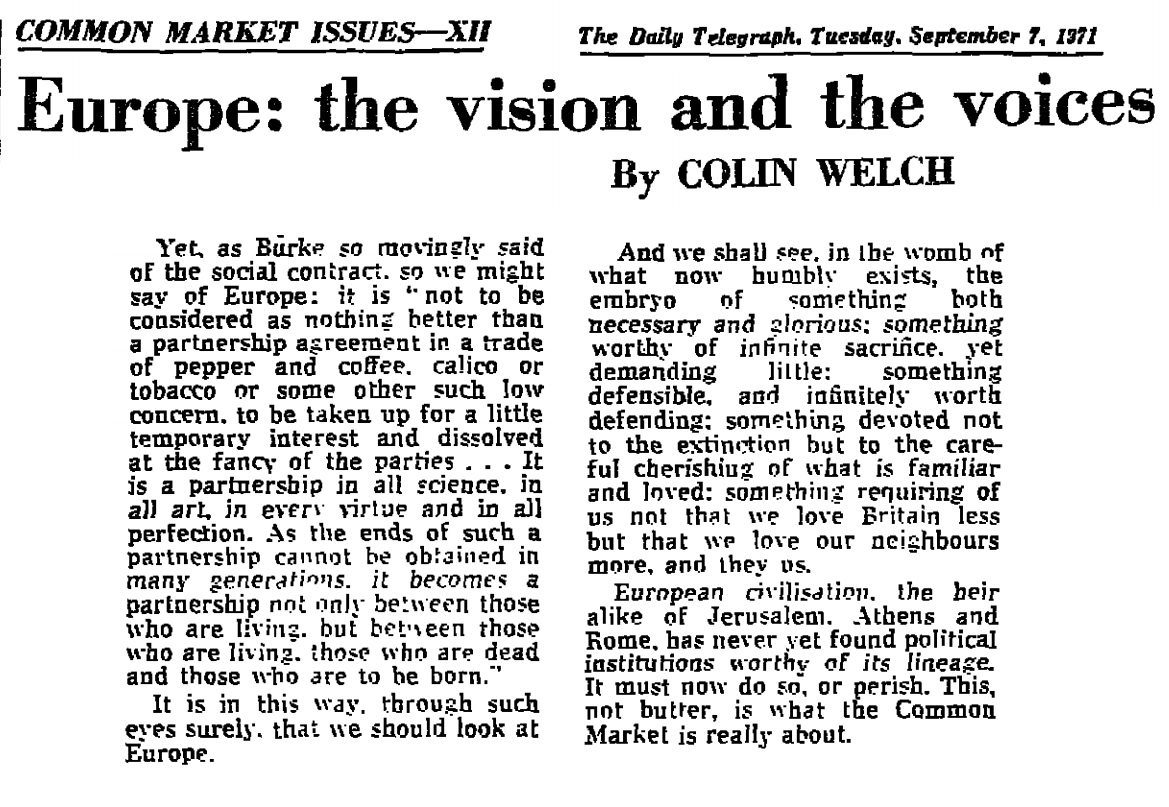
“Many have people seen it in terms which are important, like say the price of butter, which are not the most important” and “Do we have a part to play in the fundamental decisions which affect us and will be taken by the great powers?”
“Because this really debate is a good deal more than fruit stalls, dairy produce, the price of butter...” and “It will be easier for this new united Europe to take up the defence commitment that the Americans may cut down”.
Joining for the defence benefits was not a new argument, but the invasion of Czechoslovakia had unquestionably magnified it in the debate. 







And while the pro-Marketeers made arguments, such as defence, the Anti-Marketeers really pushed the price of butter angle.
While also acknowledging that the pro-Marketeers were now saying that their reasons to join were political. 

Enoch Powell would remark how pro-Marketeers had emphasised ‘political unity’ more and more and suggests “that casts an interesting light, I would have thought, on the economic arguments”.
Derek Walker-Smith joked that one minute pro-Marketeers are saying that we have to put up with the political to get the economic benefits, and the next minute we must put up with the economic to get the political benefits.
In 1977, Eric Heffer wrote “Before we joined the EEC, and during the referendum campaign, it was often said that the grand design of European unity could not be allowed to falter because of the price of butter...” 

It wasn’t until about the time of Maastricht that the lies begin:
“It was simply going to be a free trade area, nothing more”.
“It was simply going to be a free trade area, nothing more”.

Even going as far as to argue that it had been sold as just a Common Market for trade, and the political side was kept from the British public.
"Our government even reassured us with an official document called a White paper"
"Our government even reassured us with an official document called a White paper"
An interesting take on a White paper that included the quote: “the Government’s purpose derives above all from our conviction that Europe is now faced with the opportunity of a great move forward in political unity...” 
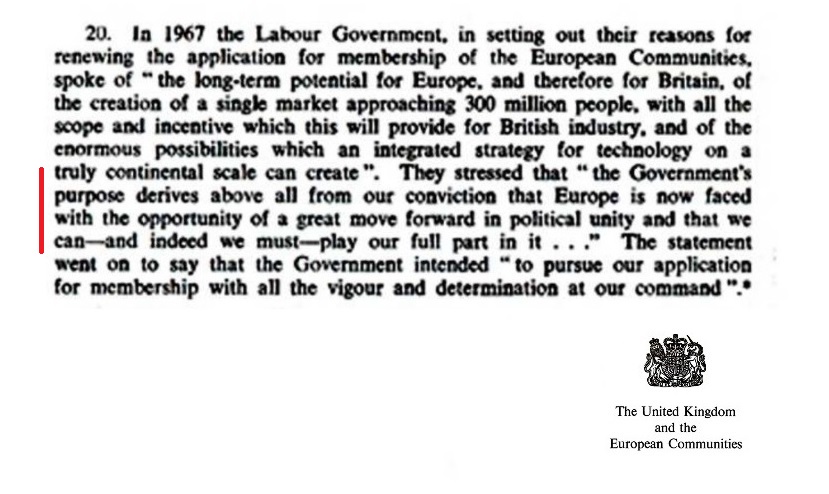
And that the EEC had “firmly and repeatedly made it clear that they reject the concept that European unity should be limited to the formation of a free trade area.” 
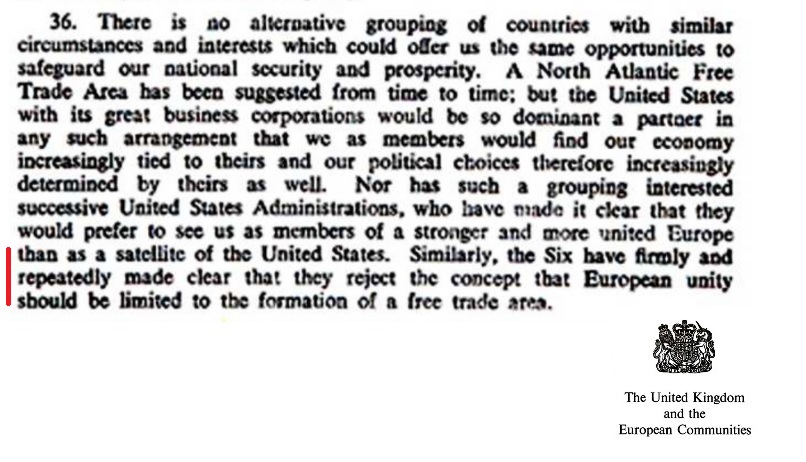
The German correspondent of Die Welt, Herr Fritz, wrote of the White paper that Mr Heath’s government had made it clear to the British citizen that the decision facing the country was not about the price of butter or meat, but about the political destiny of the nation. 

George Thompson said the White Paper was right “to raise the level of debate from the price of butter to the price we are prepared to pay to enable the voice of Western European civilisation so sadly muffled since the war, to speak on equal terms with any of the super-Powers.” 

The Telegraph wrote of it "The survival of Western Civilisation depends on the closer integration of Europe's defence" and "it will be easier to sell the age-old dream of a united Europe...if worries about the price of butter can be shown to be the bogeys they... always were." 

The fact is, the EEC was never introduced as being about trade, the founders didn’t say it was just about trade, it wasn’t just about trade, and it wasn’t sold to the people as being about trade but as a political project covering economic, foreign policy, and defence fields.
If we, and the future generations of this country, are going to continue to tell ourselves we joined a ‘trade organisation’ and left because it became political and sought a defence union, we are not going to be taken seriously on the world stage. 
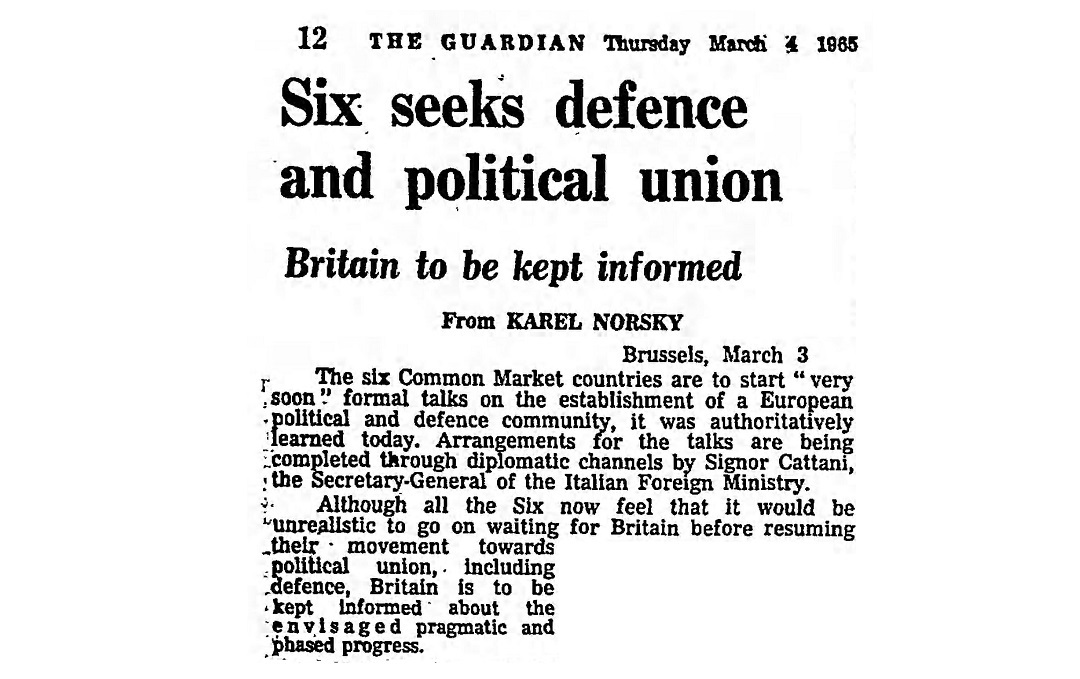
And if we add fuel to the conspiracy theories, then the British will be condemned to be cast as liars, because the continent hasn’t been subjected to the same 20 years of lies about our accession, and they kept a close eye on how the EEC was sold at the time. 

When we joined, the politicians believed that the British, as the creators of an empire, were the people who would take up the challenge of building the peaceful Europe of the future.
It was not about the price of butter.
It was not about the price of butter.

We must be honest and accept that their faith was too great, and our resolve too little, or we will forever be an outcast on our own continent, condemned to view our relationship with the mainland through the prism of victimhood.
We have no one to blame but ourselves.
/End
We have no one to blame but ourselves.
/End
• • •
Missing some Tweet in this thread? You can try to
force a refresh




